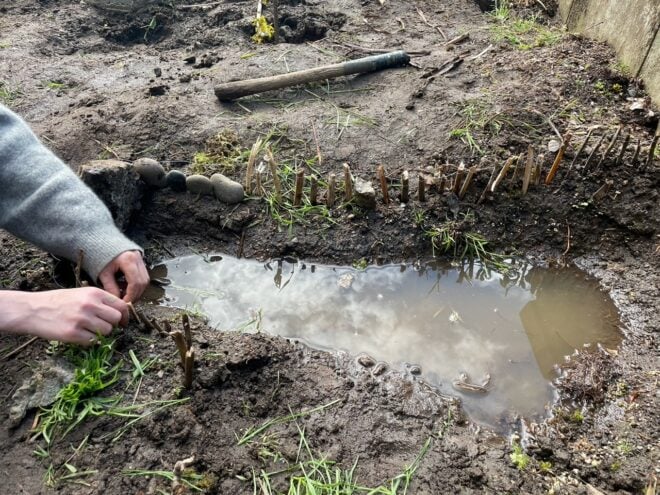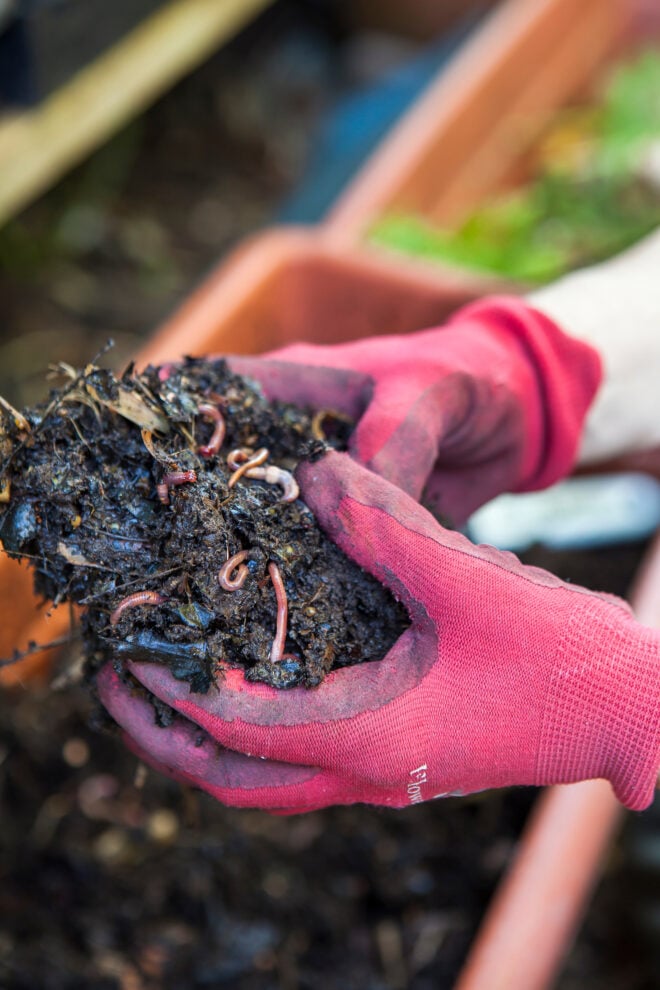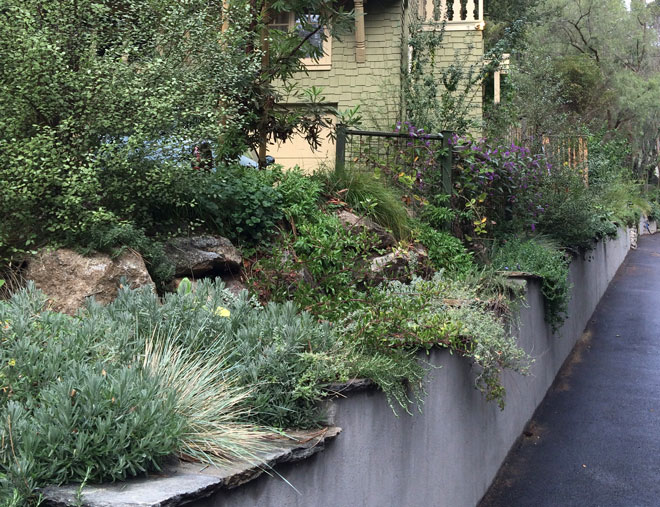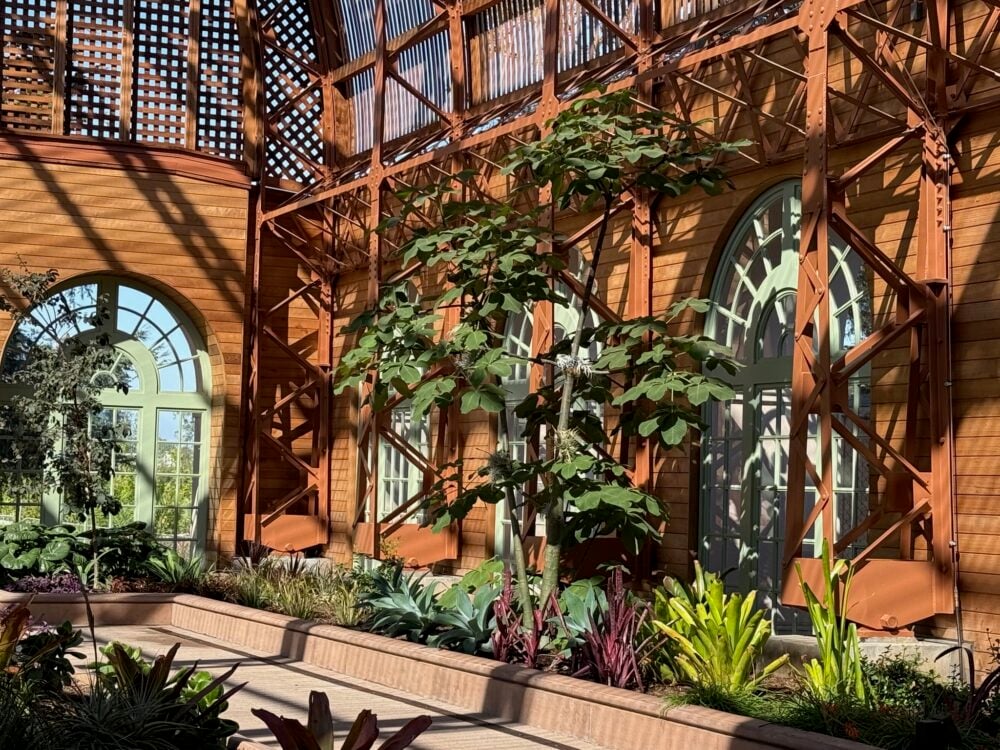
Interacting with Soil is Good for You

Contributor
- Topics: Nature is Good For You
Winter 2024
Do you recall your mother telling you not to play in the dirt? Or requiring that you wash up after playing outside? This insistence on ultra-cleanliness may sound like proper hygiene, but research has shown that being exposed to soils may have some long-overlooked benefits to our physical and mental well-being.

While the benefits are real, they are often not visible. The bacterium Mycobacterium vaccae has been the focus of a series of recent scientific studies. Mv, as I’ll call it, is a non-pathogenic bacterium in many types of soil. Research over the past decade has revealed that Mv, when taken in through soil contact, causes the activation of neurons in the brain that contain serotonin. And serotonin is a powerful, naturally occurring chemical that controls mood, improves sleep cycles, and diminishes feelings of pain, anxiety, and depression.
Much of the evidence of these positive effects is based on a multi-author study from University of Bristol (Lowry et al. 2007). There, mice exposed to Mv displayed alterations in their behavior similar to what antidepressant drugs would produce, without any adverse side effects. In another project, mice were pre-stressed with over-crowded housing. Untreated animals developed a high incidence of colitis, a high-stress response. But mice injected with Mv showed no such reaction, even though they experienced the same negative living conditions.
These benefits extend to humans, as well. In 1940, during negotiations following the Winter War, Finland ceded a large swath of territory known as Karelia to the Soviet Union. In the second half of the twentieth century, the Finnish side became modernized, while people on the Soviet side maintained a traditional lifestyle. By the twenty-first century, the prevalence of allergies on Finland’s side of the border region was significantly higher than that of people living on the Russian side, according to a study by researchers at the University of Helsinki (Akst 2020). The researchers have determined that the country kids had more—and more diverse—bacteria on their skin. The children on the Russian side had a particularly high abundance of another bacterium, Acinetobacter—a genus of microbes commonly found on plants and in soil. Put simply, the Finnish youth were leading overly sterile lives which negatively impacted the microbiome of their skin.


Returning to the Bristol paper, as lead author Dr. Chris Lowry explained, “These studies help us understand how the body communicates with the brain and why a healthy immune system is important for maintaining mental health. They also leave us wondering if we shouldn’t all be spending more time playing in the dirt” (University of Bristol 2007).
Many efforts today focus on getting young people outside to plant and care for gardens. As kids set seeds in a furrow, or sink seedlings into holes, they are also interacting with soils. Not only does this interaction expose them to the bacterial benefits I’ve described, but it also increases their awareness of that mysterious belowground environment on which plants depend.
While digging in soils, children as young as five can learn about the various horizons that make up most soils, about the role of earthworms and other soil-borne insects, and about the need to conserve soils in response to climate change. Digging deeper, kids will learn soil is not “dirt.” In fact, it’s a complex living system that not only lets plants grow, but also facilitates gas exchanges between land and air, provides habitat for most of the organisms on Earth, holds and cleans water, and recycles nutrients.
To celebrate both the importance of soils to life on our planet but also how much fun it is to get dirty, the Global Forum held the first International Mud Day in 2009. In the years since, countries as disparate as Australia, the Netherlands, Nepal, and the US have held annual Mud Day Celebrations every June 29. Setting up for a Mud Day event can be as simple as digging a pit,
filling it with soil until a thick layer of mud forms, and letting the public dive in. While kids may be the most attracted to this setup, adults can put aside their inhibitions to join their children in mud-draped joy.
You can bet that each participant, as they roll in the mud, will be absorbing lots of Mv and other beneficial bacteria.
More from the Pacific Horticulture Archives
The Big Shift. by: Marilee Kuhlmann & Paula Henson
By now most gardeners are aware of soil microbes. Even old-school garden workshops cover disease-inducing microbes—nematodes are generally painted with the bad-guy brush—and many even include the beneficial effects of inoculating legumes with bacteria or adding mycorrhizae to woody plant roots. But let’s look at the bigger picture—the root of it all, so to speak. Complex interactions of diverse soil microbes affect every plant/soil/water/carbon interaction in the garden. >> Read More
January Showers Bring February flowers… by: Annette Huddle
It may not quite have the same ring to it as the old English proverb, but it has a lot more truth to it for those of us who live and garden in the mediterranean climate along the West Coast. In our part of the world, the seasonal cycle and its effects on the natural world are far different from the patterns described in stories, songs, and science books children encounter as they learn about the world around them. >> Read More
This Article was Sponsored by:
Resources
Learn more about Mud Day from the World Forum Foundation.
Akst, Jef. 2020. “The Influence of Soil on Immune Health.” The Scientist. January 8, 2020.
Lowry, C.A., J.H. Hollis, A. de Vries, B. Pan, L.R. Brunet, J.R.F. Hunt, J.F.R. Paton, et al. 2007. “Identification of an immune-responsive mesolimbocortical serotonergic system: Potential role in regulation of emotional behavior.” Neuroscience 146 (2): 756–772.
University of Bristol. 2007. “Getting dirty may lift your mood.” News release, April 2, 2007.













Responses